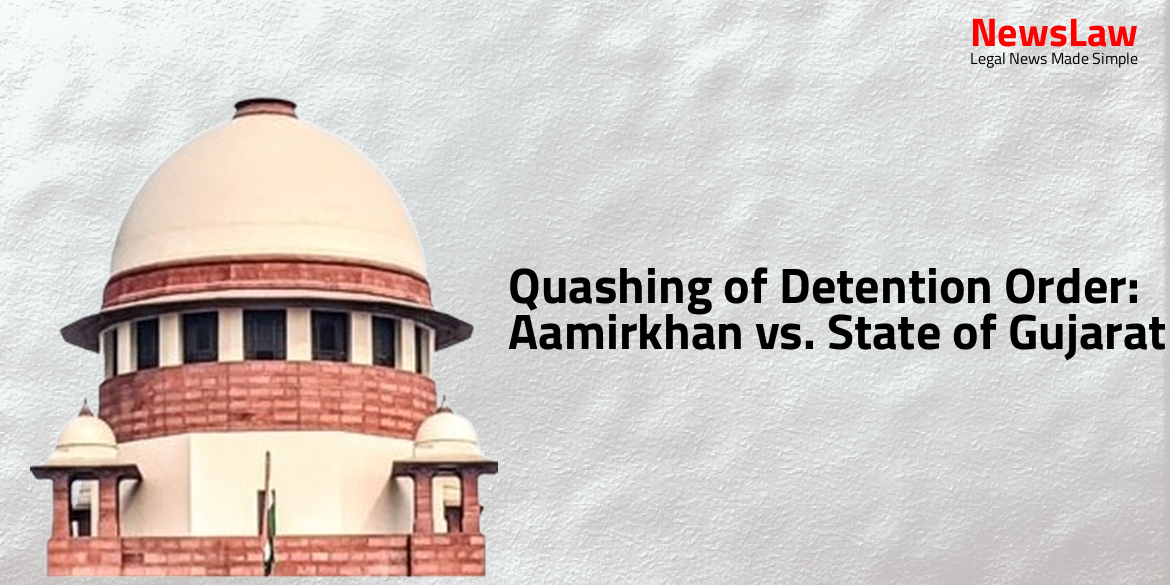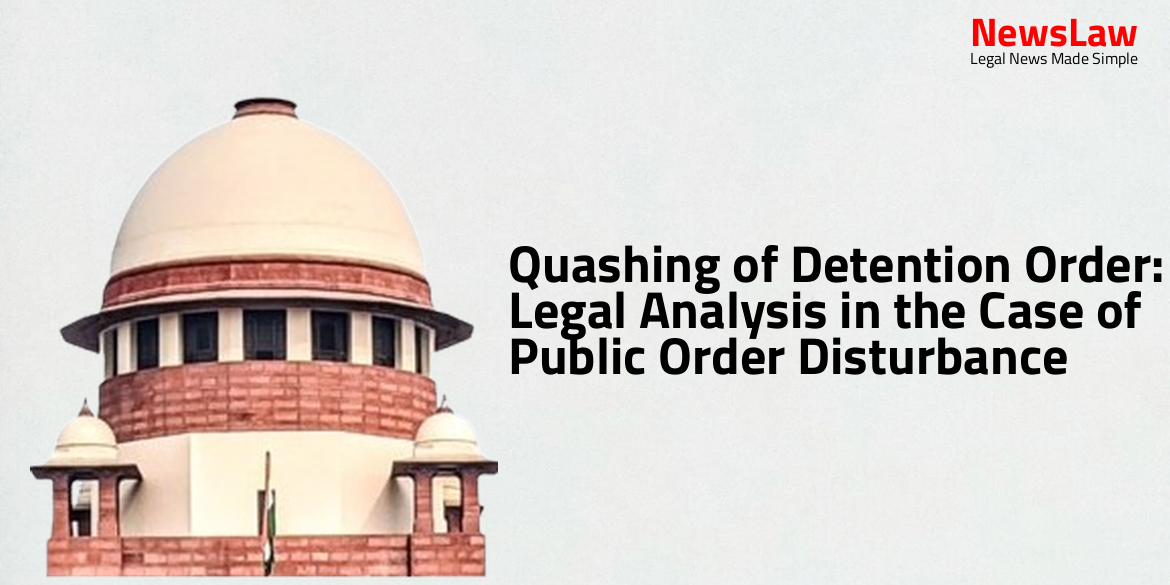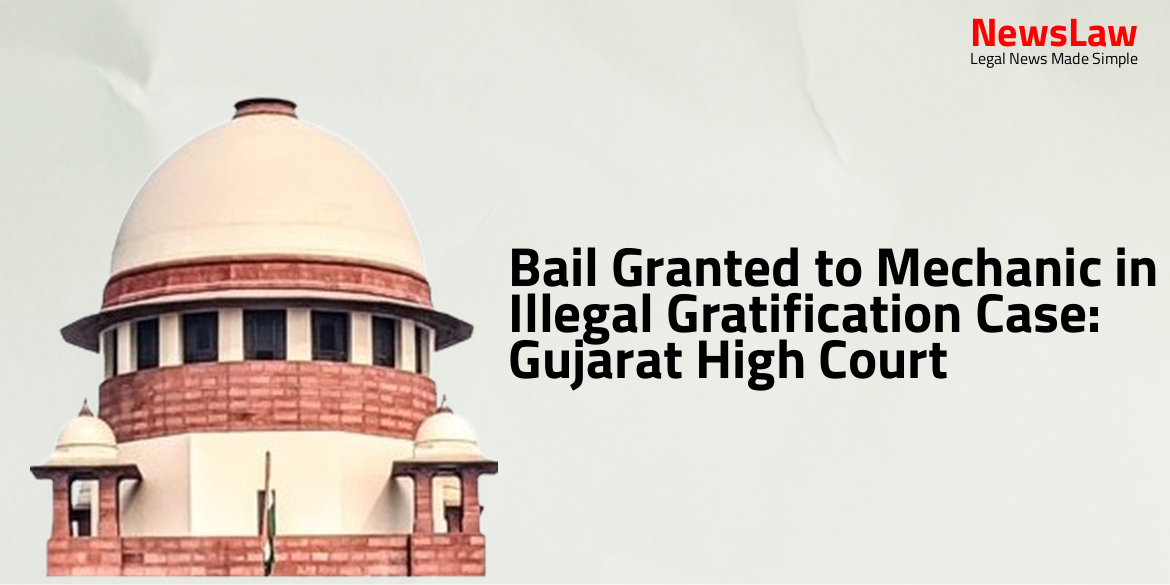A significant legal ruling from the Gujarat High Court has been made in the case of quashing the order of detention in an alleged bootlegging scenario. The Court carefully evaluated the circumstances surrounding the detention order and found that it did not meet the threshold for impacting public order. This decision illustrates the nuanced approach the judiciary takes in cases involving individual rights and public tranquility.
Arguments
- Order of detention passed based on registration of one FIR under Gujarat Prohibition Act
- Detenue’s case does not fit definition of bootlegger under section 2(b) of the Act based on solitary offence
- Illegal activity alleged does not have nexus with maintenance of public order, only a breach of law and order
- Request to set the detenue free from detention
- AGP objected to the grant of the petition, citing sufficient material against the detenue for engaging in illegal activities as defined by the Act.
- The detenue is alleged to be habitually involved in illegal activities.
- The detaining authority was deemed to have rightly passed the order of detention.
- The Court disagrees with AGP’s stance and finds it difficult to see the detenue’s activities as a threat to public order.
- The alleged activities of the detenue are not perceived to have significantly disrupted public peace or the normal life of the people at large.
- The Court leans towards quashing and setting aside the order of detention.
Analysis
- Breach of peace or public tranquility does not lead to disturbance of ‘public order’.
- Proceedings under relevant provisions of the Act can be initiated against the detenue, but he does not fit the definition of ‘bootlegger’ under section 2(b) of the PASA Act.
- Relevant material must demonstrate that the detenu poses a threat to society and that his actions disrupt ‘public order’.
- Subjective satisfaction of the detaining authority was not reached before the order of detention was passed.
- The executive authorities have powers under ordinary criminal law to address cases of mere disturbances of law and order without affecting public order.
- The contravention of any law must impact the community or the public at large to be considered as affecting public order.
- In cases of assault or injury to specific persons, it does not necessarily lead to public disorder, highlighting the distinction between ‘law and order’ and ‘public order’.
- The decision in Pushker Mukherjee v/s. State of West Bengal (AIR 1970 SC 852) delved into the scope of ‘public order’ encompassing various categories of infractions of order.
- The order of detention was passed without resorting to the lesser drastic remedy of canceling bail, thereby leading to a vitiated subjective satisfaction of the authority.
- Citing the recent decision in Shaik Nazeen v/s. State of Telangana and Ors., the Court emphasized that preventive detention should not be the immediate recourse if other alternatives are available.
- Merely registering an FIR does not inherently indicate a breach of public order, lacking the necessary nexus for invoking power under section 3(2) of the Act.
- When two individuals engage in a quarrel, fight, or assault each other, it may lead to disorder but not public disorder.
- The judgment underscores the importance of distinguishing between serious forms of disorder impacting the community and minor breaches of peace affecting specific individuals.
Decision
- The present petition has been allowed and the order of detention dated 13.11.2023 has been quashed and set aside.
- The detenue is to be released immediately if not required in any other case.
- The Rule is made absolute accordingly.
- Direct service is permitted for this decision.
- The detenue was granted bail by the competent Court on 07.11.2023, and the order of detention was passed on 13.11.2023.
Case Title: ARJUN @ SUNNY PUNAMBHAI MARVADI Vs. COMMISSIONER OF POLICE OF CITY OF VADODARA
Case Number: R/SCA/20371/2023



